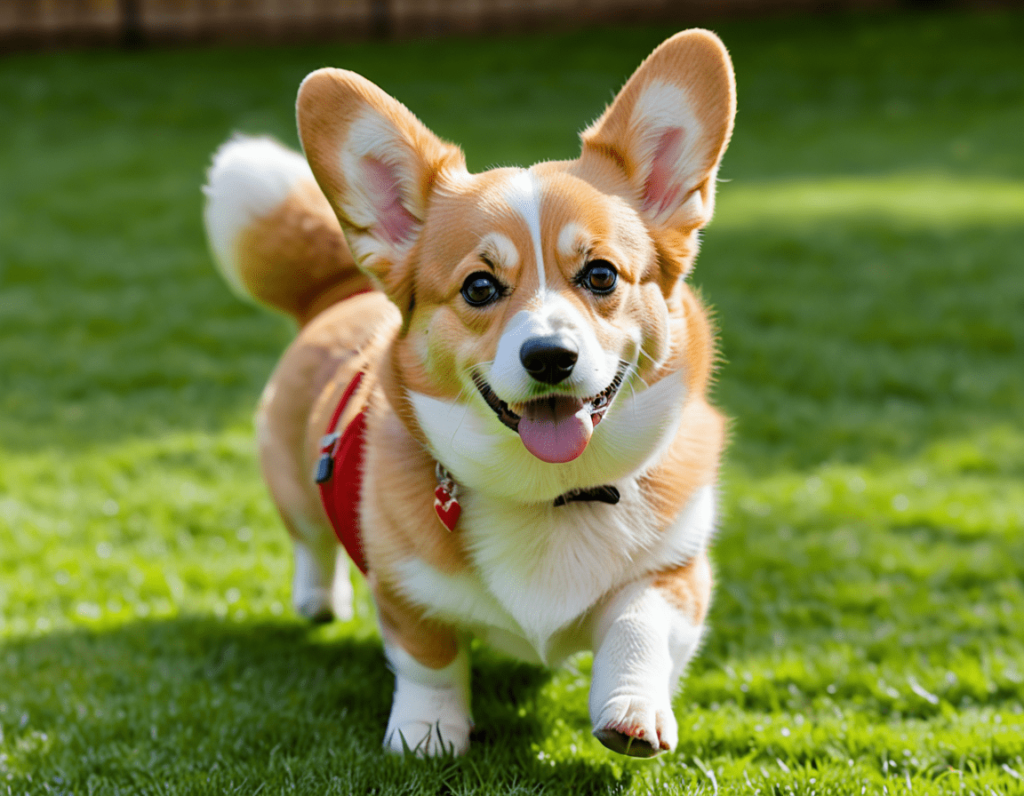
Dog Intelligence and Problem Solving: Unleashing Your Pup’s Inner Genius
When you think about intelligence, dogs might not be the first creatures that come to mind—after all, they’re often more interested in chasing their tails than solving math equations! But don’t be fooled; dogs are incredibly smart and have a knack for problem-solving that can surprise even the most sceptical owner. So, let’s dive into the fascinating world of dog intelligence and discover just how clever our furry friends can be!
The Different Types of Dog Intelligence
Just like humans, dogs exhibit various types of intelligence. Here are the main categories that showcase their smarts:
- Adaptive intelligence: This is the ability to solve problems based on experience. For example, if your dog learns that knocking over the trash can leads to a tasty treat, you can bet they’ll be strategising their next trash raid in no time. Watch out for those clever canines!
- Working intelligence: This type relates to how well dogs can follow commands. Some breeds are particularly good at this, making them excellent candidates for obedience training and working roles. When your dog performs a trick for a treat, they’re showing off their working intelligence—think of it as their version of a doggy diploma!
- Instinctive Intelligence: This is what breeds were specifically bred for, whether it’s herding sheep, retrieving game, or simply being your loyal companion. For example, Border Collies are natural herders and have a deep instinct to round up animals. Just don’t expect them to manage a flock of sheep if they haven’t been trained!
How Smart Is Your Dog?
So, how do you measure a dog’s intelligence? While there’s no official IQ test for dogs (sorry, Rover! ), there are plenty of ways to gauge their smarts. Here are some fun activities to try:
- Puzzle Toys: These toys challenge your dog to think critically. They might need to figure out how to slide pieces or turn knobs to get to the treat inside. Watching your pup’s determination is like having your own canine version of “The Great British Bake Off,” but with fewer soggy bottoms!
- Training Sessions: Teaching your dog new commands or tricks is a great way to test their learning ability. If your dog picks up a new trick faster than you can say “sit,” congratulations! You’ve got a little genius in your hands.
- Hide and Seek: This classic game isn’t just for kids; dogs love it too! Have someone hold your pup while you hide. When they’re released, watch them sniff out your hiding spot. It’s like their own version of a detective novel!

Problem solving: What Can Dogs Do?
Dogs are not just good at learning commands; they can also solve problems in creative ways. Here are a few examples:
- Opening Doors: Some clever pups have figured out how to open doors by jumping, pulling, or even using their noses. If you find your dog has turned into Houdini, you might need to invest in some childproof locks!
- Finding Food: Dogs can learn to navigate mazes or obstacles to reach a treat. Their sense of smell is so strong that they can often “sniff out” food from quite a distance. It’s as if they’ve got their own built-in GPS for snacks!
- Social problem solving: Dogs are great at reading human emotions and responding accordingly. If you’re feeling down, your dog might snuggle up next to you, sensing your need for comfort. They’ve got a sixth sense when it comes to human feelings—probably because they know that cuddles often lead to treats!
The Smartest Dog Breeds
While every dog has its own unique charm and intelligence, some breeds are known for their exceptional problem-solving abilities. Here are a few of the top contenders:
- Border Collie: Known for their herding instinct and trainability, Border Collies are often considered the smartest dog breed. They can learn commands in just a few repetitions, making them the stars of obedience competitions.
- Poodle: Don’t let their fancy haircuts fool you; Poodles are incredibly intelligent and versatile. They excel in various canine sports and are great at picking up new tricks quickly.
- German Shepherd: These loyal and protective dogs are known for their intelligence and ability to learn commands easily. They’re often used as police and service dogs due to their problem-solving skills.
- Golden Retriever: Friendly and eager to please, Golden Retrievers are not only great family pets but also quick learners. Their social nature makes them fantastic therapy dogs as well.
Dog Intelligence and Problem Solving (FAQs):
To help you delve deeper into the fascinating world of dog intelligence and their problem-solving abilities, here are some common questions that many dog owners have:
1. How can I tell if my dog is smart?
Answer: While there’s no official “dog IQ test,” you can look for signs of intelligence in your dog. Does your dog learn new commands quickly? Can they solve puzzles or navigate obstacles? If your pup shows curiosity and adapts well to new situations, they’re likely displaying their smarts!
2. What are some signs that my dog is bored?
Answer: A bored dog may exhibit behaviours like chewing on furniture, digging, excessive barking, or trying to escape the yard. If your dog seems restless or is constantly looking for trouble, it might be time to engage their brain with more activities or toys.
3. Can I teach my dog to solve puzzles?
Answer: Absolutely! Puzzle toys are an excellent way to challenge your dog’s mind. Start with simpler puzzles and gradually increase the difficulty. Reward them with treats and praise as they learn to navigate the challenges. It’s like a game show for dogs—complete with snacks!
4. Are some dog breeds better at problem-solving than others?
Answer: Yes, certain breeds are known for their intelligence and problem-solving skills. Breeds like Border Collies, Poodles, and German Shepherds tend to excel in training and problem-solving tasks due to their high levels of intelligence and eagerness to learn. That said, every dog has its own unique strengths!

5. How can I improve my dog's problem-solving skills?
Answer: You can enhance your dog’s problem-solving skills through various activities, including interactive toys, agility courses, and obedience training. Incorporate games that require thinking, like hiding treats or playing hide-and-seek. Keeping your dog mentally stimulated is key to sharpening their problem-solving abilities.
6. What role does a dog's age play in intelligence?
Answer: Puppies are typically more curious and eager to learn, but adult dogs can also be quite intelligent! Older dogs may have developed their problem-solving skills over time, making them very capable. However, cognitive abilities can decline in senior dogs, so keeping their minds active is essential for their overall well-being.
7. Do dogs understand human commands in different languages?
Answer: Dogs are excellent at picking up on cues, including verbal commands in different languages. As long as you’re consistent in using the same words and tone, your dog can learn commands in various languages. So, if you want to impress your friends with a bilingual pup, it’s totally doable!
8. Can dogs recognise their names?
Answer: Yes! Most dogs learn to recognise their names, especially when associated with positive experiences like treats or playtime. If you call your dog and they come running, you know they’ve mastered the art of name recognition!
9. How do dogs use their sense of smell in problem-solving?
Answer: Dogs have an extraordinary sense of smell, which they use to solve problems. For instance, if they lose a toy, they can often track it down using their nose. Their sense of smell can help them detect scents from a considerable distance, making them skilled at sniffing out hidden items or even finding lost people.
10. Why do dogs follow us around?
Answer: When dogs follow you around, they may be trying to learn more about you or simply want to be near their favourite human. They thrive on social interaction and often seek companionship. Plus, they might be anticipating snacks or playtime, so be ready for some tail-wagging attention!
Final Thoughts
Understanding dog intelligence and problem-solving capabilities enriches the bond you share with your furry friend. By engaging their minds and providing mental stimulation, you can help your dog reach their full potential, ensuring they are happy, healthy, and entertained.
Remember, dogs may not be solving complex equations, but their ability to navigate the world around them, learn new skills, and understand our emotions shows just how brilliant they can be. So, the next time your pup figures out how to unlock the backdoor or successfully retrieves a toy you thought was lost forever, give them a high-five! They’ve earned it!
With these insights, you’re well-equipped to appreciate the intelligence of dogs and how it plays a crucial role in their everyday lives. Here’s to our clever companions—may their problem-solving skills always leave us in awe!


